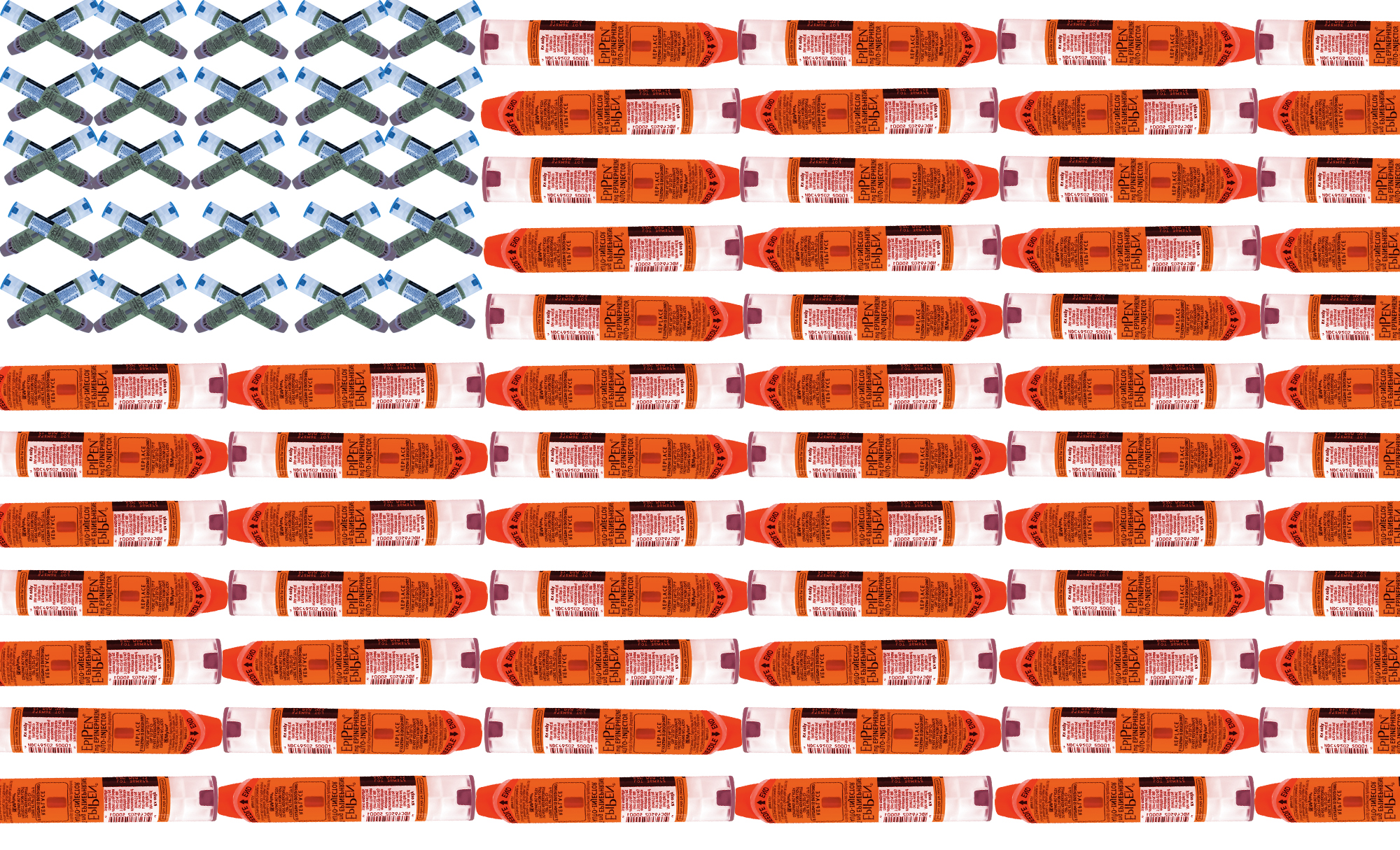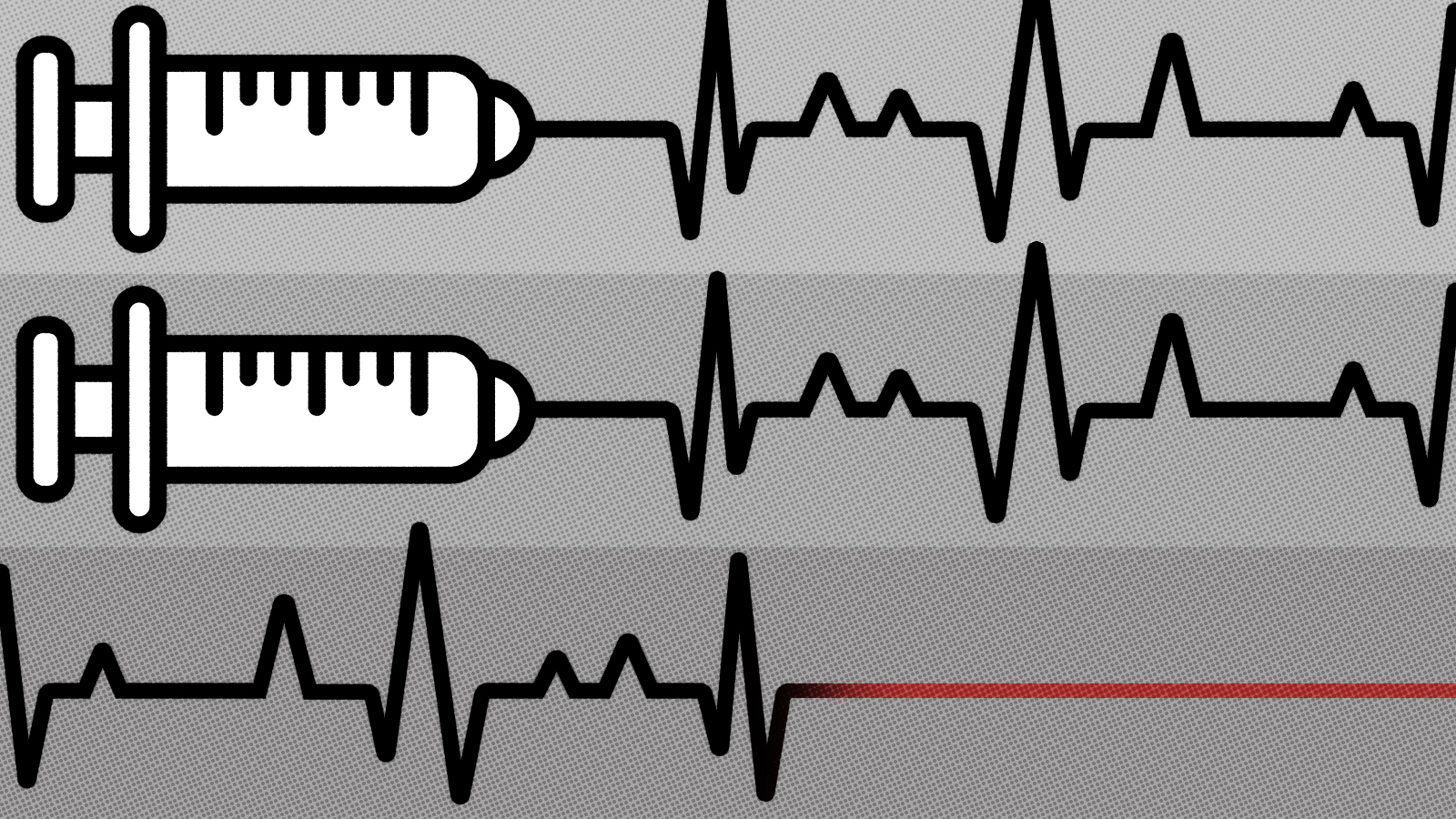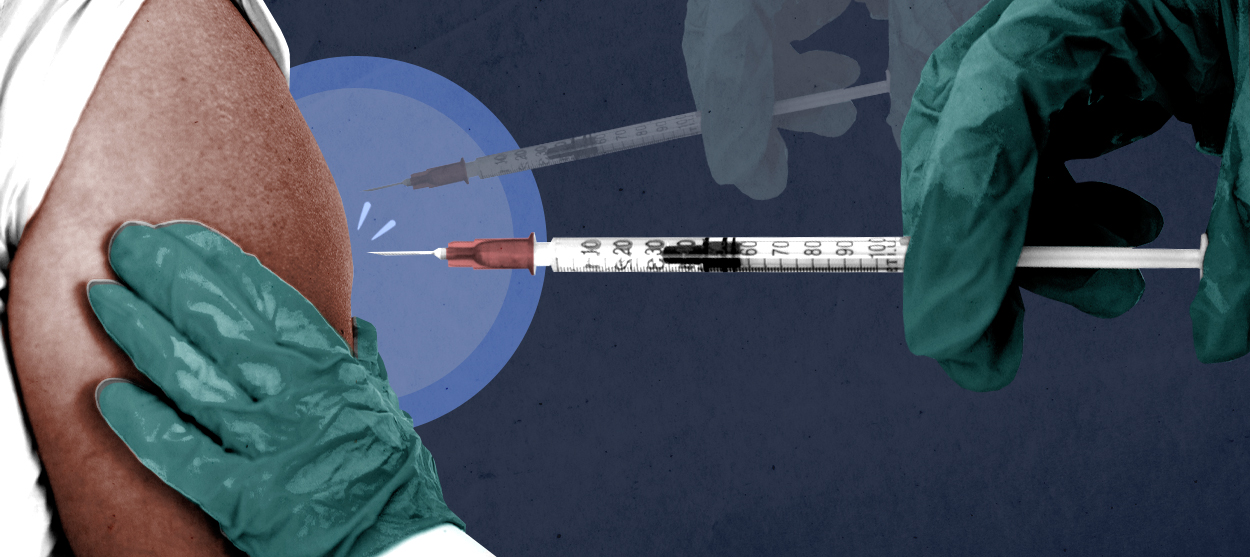The EpiPen scandal is everything wrong with American health care
Drug price gouging is a sign of a dysfunctional system


A free daily email with the biggest news stories of the day – and the best features from TheWeek.com
You are now subscribed
Your newsletter sign-up was successful
America has a drug price gouging problem.
Valeant Pharmaceuticals and "Pharma Bro" Martin Shkreli are big offenders. But now, the drug manufacturer under fire is a company named Mylan.
In 2007, Mylan bought the rights to the EpiPen — the small syringe that carries the hormone epinephrine. Millions of Americans suffer from severe and even life-threatening allergies to things like certain foods or bee stings. Should they have an allergic reaction, an injection of epinephrine prevents anaphylactic shock. The EpiPen can literally save their lives.
The Week
Escape your echo chamber. Get the facts behind the news, plus analysis from multiple perspectives.

Sign up for The Week's Free Newsletters
From our morning news briefing to a weekly Good News Newsletter, get the best of The Week delivered directly to your inbox.
From our morning news briefing to a weekly Good News Newsletter, get the best of The Week delivered directly to your inbox.
But since 2007, the price of a two-pack of EpiPens rose from about $94 to about $608 today, and roughly $400 of that increase came in the last three years.
Doctors recommend allergy sufferers carry two of the EpiPens on them. The drug degrades after about a year, so users have to buy new sets annually even if they don't use them. So the price increase could conceivably break the bank for the many, many American families whose finances are already balanced on a knife's edge.
Quite understandably, the price hike also set off a political firestorm. But if you drill down into the details, this incident serves as a tour of everything that's dysfunctional about the American health care system.
When Mylan, or any other drug manufacturer, significantly raises the price of a drug, it sets off a chain reaction: Insurers have to pay more for that drug, so to cover their costs, they either hike their premiums, or they raise their deductibles or other out-of-pocket costs and offload the price onto consumers. Well-off Americans will likely just eat the higher premiums — or even more likely, they'll be on employer-provided coverage, so the higher premium cost will just come out of their paychecks before they even see it. But less fortunate Americans will be stuck with higher deductibles, making the higher cost of the EpiPen much more likely to come out of their own wallet.
A free daily email with the biggest news stories of the day – and the best features from TheWeek.com
Mylan, for its part, has offered coupons to defray the out-of-pocket cost of the EpiPen two-pack. And in response to the latest controversy, it upped the value of those coupons to $300. But that, too, mainly helps wealthier customers: The lower your deductible is, the more likely the coupon is to eliminate all of your out-of-pocket costs.
So we have a perverse system where Americans who earn less will actually get hit harder. (Though if they're poor enough, other forms of support will kick in.) But beyond that, we have a system where everyone is trying to get someone else to pay: Drug providers are trying to offload the burden onto insurers, insurers onto consumers, and the luckier consumers are trying to offload it onto their employers. The result is a god awful knot of confused market relations that makes it almost impossible for normal competitive pressure to drive down prices.
So, what to do? I see two possible ways to deal with this problem.
If you want to take the "market-based" route, which both ObamaCare and its conservative alternatives grope towards, you'd aim to get everyone off employer-based coverage and into some kind of individual coverage plan purchased from an exchange. At first, the natural market interactions between consumers, insurers, and provider will lead to higher deductibles and out-of-pocket costs. So you subsidize consumers, and hope that over time — a decade or so at least — those market interactions will also drive down the cost of drugs like the EpiPen.
But right now, ObamaCare's subsidies (and those of its competitors) aren't generous enough.
Alternatively, you could go the single-payer route: Have the government provide insurance coverage for everyone and use taxes to cover the cost. Then use the government's overwhelming bargaining power, as the insurer most every provider has to go through, to drive down costs.
The dilemma is figuring out which route we as a society want to take.
But there's another part, too: This being the real world, we don't just let anyone cook up a drug and start selling it. New drugs have to go through a battery of federal tests, which costs drugmakers a lot, before the products are allowed to be sold. That's good in that it prevents a lot of dangerous drug creations from harming people. But it's also bad, because once a drug clears the gauntlet and reaches the market, the gauntlet can stifle competitors. Plus, new drugs often come with patents that can last for years. Put it all together, and a drugmaker can get a veritable monopoly to drive up prices.
The active ingredient in the EpiPen was actually isolated over a century ago. But since 1980, the EpiPen injection device has been protected by patents, one of which doesn't expire until 2025 — and that patent was used in a recent lawsuit to block a competitor from coming to market.
Mylan has the freedom to jack up prices as much as it wants because EpiPen has basically reigned uncontested.
One thing that could certainly help here is if the federal government started spending a lot more on research and development of pharmaceuticals, and took some of the onus off the private industry's shoulders. And in a single-payer system, the government's bargaining power could likely match that of any drug monopolist.
There is no "free market" vs. "socialist" answer to how long or how strict intellectual property rights should be. There is no "conservative" vs "liberal" answer on how to handle drug testing. And that's because we haven't thought hard enough about this stuff yet. Instead, we've simply accepted existing drug testing and intellectual property rights as part of the natural landscape.
If we're going to solve the problem of drug price gouging, that will have to change.
Jeff Spross was the economics and business correspondent at TheWeek.com. He was previously a reporter at ThinkProgress.
-
 The Olympic timekeepers keeping the Games on track
The Olympic timekeepers keeping the Games on trackUnder the Radar Swiss watchmaking giant Omega has been at the finish line of every Olympic Games for nearly 100 years
-
 Will increasing tensions with Iran boil over into war?
Will increasing tensions with Iran boil over into war?Today’s Big Question President Donald Trump has recently been threatening the country
-
 Corruption: The spy sheikh and the president
Corruption: The spy sheikh and the presidentFeature Trump is at the center of another scandal
-
 Do unvaccinated COVID patients deserve scarce care? A doctor weighs in.
Do unvaccinated COVID patients deserve scarce care? A doctor weighs in.The Explainer Justice, judgment, and the last ICU bed
-
 How to vaccinate the anti-vaxxers
How to vaccinate the anti-vaxxersThe Explainer Instead of blaming people for not doing the right thing, let's focus on eliminating the obstacles to vaccination that still remain
-
 The U.S. could double its COVID-19 vaccine availability overnight. What's the holdup?
The U.S. could double its COVID-19 vaccine availability overnight. What's the holdup?The Explainer How the FDA could approve a more efficient vaccine rollout
-
 The October Surprise nobody wanted
The October Surprise nobody wantedThe Explainer Trump has COVID-19. Really, 2020?
-
 Life is worth living
Life is worth livingThe Explainer What's driving America's rising suicide rate?
-
 Social workers are masters at de-escalation. Here's what the police can learn from them.
Social workers are masters at de-escalation. Here's what the police can learn from them.The Explainer Knowing how to peacefully resolve conflict, rather than exacerbate it, can save lives
-
 Settling in for the long pandemic
Settling in for the long pandemicThe Explainer Life won't be back to "normal" anytime soon
-
 Sports reveal how much America is trailing the rest of the world
Sports reveal how much America is trailing the rest of the worldThe Explainer MLS and other American leagues are stumbling through their pandemic restart plans
